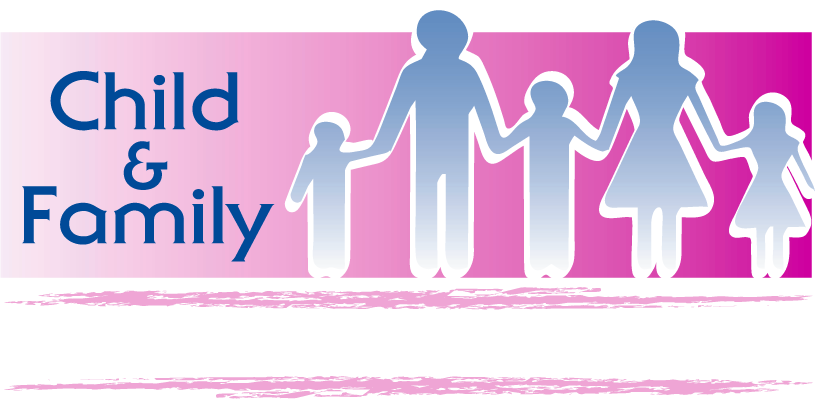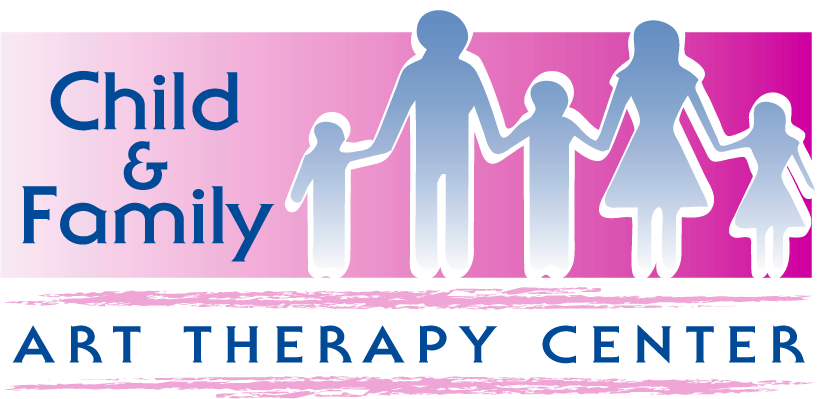
Individual Art-Play Therapy w/Parent Support & Training
~ for 3-12 year-olds ~
Our award winning preschool and elementary school child therapy involves caregivers in every session and also offers break-out caregiver-only meetings.
A typical CFATC child therapy session has a consistent two-part structure that provides therapy at three levels: the Cognitive-Behavioral Therapy Coping Skill level, the Parent/Family level, and the Deeper Emotional level.
Part one is brief parent-child verbal therapy called “Talk Time”, and part two is "Child Directed Art-Play Therapy".
Age 3-12 Art Therapy-Play Therapy with Caregiver Support & Training
PART ONE
Child-Caregiver “Talk-Time” (10-15 minutes)
In child therapy with us, we open each session with a brief parent-child skill-building/problem-solving period, called “Talk Time” (a.k.a. “Reality Time”). Children and caregivers focus on one real-life issue and leave each child counseling session with a concrete and actionable CBT coping strategy to practice at home. This portion of child therapy focuses on the cognitive/skill level and the family/parent- child relationship level.
Strength Based Intro
Every therapy session with children begins with the sharing of “good stuff”, successes and positives from the week. Children explore how and why they succeeded, which validates strengths, reinforces successful strategies, and builds positive therapeutic momentum and real confidence.
Skill Building and Problem Solving
Next, we identify ONE challenge to work on. Our therapists teach a brief cognitive-behavioral therapy (CBT) coping skill lesson or lead a problem-solving discussion. Both caregiver and child leave each session with a practical, actionable strategy and shared coping language. In separate caregivers-only sessions (see bottom right) you are taught how to use and reinforce the coping strategies.
PART TWO
Child Directed Art-Play Therapy (35-40 minutes)
This portion of our child therapy works on issues on a deeper, emotional level - beneath the surface.
Children enter a friendly child therapy room that looks like a den or a play room - filled with toys, sand trays, and art materials. They experience kind, gentle, and playful interactions with a therapist who strongly promotes the child’s ability to positively direct his or life. Our child-directed style generously encourages children to choose the materials and activities they want.
Art and play therapy techniques are a bridge to understanding the child’s inner world. Every toy or art material in the room is a potential symbol representing the child’s inner experience. With childlike curiosity and spontaneity, our therapists join with the child’s imagination. In that way we encourage our clients to explore their feelings, relationships, and issues in their artwork and play scenarios.
Our therapists follow your child’s lead, celebrate their imagination, and offer empathic/mirroring comments, so kids feel comfortable! Their comfort allows children to open up on their own terms and lead our child therapists directly to the root of the issue! Children work through and resolve core conflicts, express and master feelings and impulses, and heal even the deepest of traumas - all through play, art, imagination, and creativity.
Separate Parent-Support Sessions
Private parent support sessions without children present allow you to speak freely about your concerns. In those meetings you’ll receive in-depth treatment updates and develop or adjust the supportive home program. We support caregivers through the entire therapy process.
We help caregivers understand your child’s unique wiring, current range of coping skills, and developmental level. Accurate understanding of the child’s functioning enables you to individualize support for the child’s unique temperament and personality. When necessary, specific family rules, rewards, consequences, and communication skills are taught to help the child achieve maximum success.
Often, by the time children come to work with us, there may be stress or worry, frustration, or anger at home. Our therapists help caregivers interrupt negative feeling-behavior cycles and create ultra-positive coping efforts in our clients. The family feels better! When caregivers use individualized parenting and structure strategies, their kids' ineffective coping habits shrink or disappear.
Where do you offer these services?
We offer these child therapy services at our four office locations, Haverford, Paoli, Plymouth Meeting, and Center City, Philadelphia.


